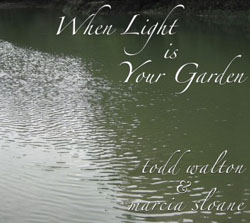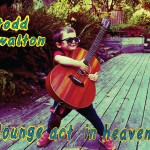
There once was a dog named Cozy Fart Head who was the reincarnation of Mozart. We realize that may seem implausible, but tell us something that isn’t essentially implausible. We are, after all, each the result of one little nearly invisible spermatozoa out of millions and millions in a single ejaculation that against all odds somehow got admitted into the egg before the fortress wall closed. Had any other spermatozoa been selected, we wouldn’t exist. If we’re not implausible, we’re highly unlikely.
Why, you may ask, would anyone name their dog Cozy Fart Head? Here’s what happened. When Hank Testaverde, known to his acquaintances as Testosterone, was thirty-seven, he hooked up with Sheila Sunrise who was twenty-four, and early on in their six-year cohabitation Sheila got pregnant and gave birth to a boy she named Maurice. Hank thought Maurice was his kid, but actually Sheila conceived Maurice with a guy she met at a Laundromat while Hank was in Reno gambling away his disability check. The guy who impregnated Sheila told her his name was Maurice, and though she didn’t believe him, she named their kid that.
Maurice was sweet and super smart, and Hank was actually an okay parent to him as long as Sheila was around, which was until Maurice was five, at which point Sheila had had enough of life with Hank in his cruddy old trailer in a low-life trailer park called Shangri-La Haven in a town we will not name in California. And because she was an irresponsible promiscuous alcoholic, Sheila did not take Maurice with her, after which Hank was not such a good parent to Maurice and started calling him Bummer.
Even so, for Christmas a few weeks after Sheila split, Hank gave Maurice a puppy to keep him company in the absence of his mother. The pup was a mix of Pit Bull, Chocolate Lab, and Siberian Husky. Maurice called the pup Cozy, but Hank said that was a pussy name and called the dog Fart Head. Hence the dog initially thought his name was Cozy Fart Head.
Then about six months after Sheila split, Hank hooked up with Angela, another promiscuous alcoholic, and when Angela and her three-year-old daughter Tess moved into the cruddy little trailer, Hank called Child Protection Services and said a woman had abandoned her little boy and a dog at his place and they should come get the child and the dog.
As luck would have it, the social worker assigned to Maurice’s case was a woman named Margot Morningstar who loved dogs and had recently lost her beloved old mutt Casey. She also recognized in Maurice an inherently kind and generous soul, so she adopted Cozy Fart Head and placed Maurice in a foster home with a cousin of hers named Rose Black Feather and Rose’s partner Thomas Gray Hawk. On Saturdays Margot would babysit Maurice and he’d get to be with Cozy Fart Head, which is when Margot learned the boy’s name for the dog was Cozy and he never appended those additional two derogatory words.
Margot Morningstar was a Pomo Indian, her cousin Rose was Pomo, too, and Thomas was Maidu. Rose and Thomas had two other foster kids, a nine-year-old girl named China and a seven-year-old boy named Champ. Rose was an RN at the local hospital, Thomas a car mechanic, and life with them for Maurice was in every way a thousand times better than his life had been with Sheila and Hank.
*
So, yeah, Cozy was the reincarnation of Mozart. What a kick. Here was the spirit essence of a genius musician living out yet another life in the body of a seventy-five-pound dog. Since inhabiting the body of Mozart, this particular spirit essence had reincarnated dozens of times, usually in a human body, but four times as a pelican and numerous times as hummingbirds. Cozy was Mozart’s first dog incarnation, and Mozart enjoyed many aspects of being a dog, though now and then longed for fingers with which to tickle the old ivories.
Before this spirit essence was Mozart, it had incarnated in many people, many elephants, dolphins, and countless tigers. Making music was always a high priority when this spirit essence aimed to be reincarnated, but sometimes the targeted ovum was missed and another ovum became the landing spot.
In the case of Cozy, the spirit essence of Mozart was aiming for the ovum of a moments-before impregnated woman who lived two doors down from the home of Hank’s friend Carl. And the spirit essence of Mozart would have merged with the ovum of Golda Bernstein, a brilliant violinist, except Golda suddenly got out of bed where she’d been snoozing beside her husband Eli, a brilliant pianist, and the spirit essence of Mozart bounced off the Bernstein bed, flew out the window, and as spirit essences once launched will do, merged with the first ovum it encountered, which in this case was Carl’s moments-before impregnated dog Sophie.
That’s the prelude to the story of how the spirit essence of Mozart, incarnate as a large friendly dog, was able to share its musical genius with the world yet again.
*
So when Maurice was seven and his brother Champ was nine and his sister China was eleven, foster parents Rose and Thomas adopted the trio and the kids were no longer foster kids. To celebrate this momentous event, Thomas and Rose said the kids could each have a reasonably priced gift of their choosing. China asked for a basketball hoop and ball, Champ asked for a fishing pole and fishing reel, and Maurice asked if Cozy could come live with them.
“If you will take care of him, feed him, and most importantly pick up his poop,” said Rose. “Okay.”
“What else do you want?” asked Thomas, encouragingly.
“Well,” said Maurice, who thought Thomas and Rose were the most wonderful people on earth, “I’d love to have a guitar.”
We should note here that reincarnated spirit essences remember all their previous lives when they are residing in the spirit realm. And most spirit essences can also remember their previous lives when they inhabit the body of anything other than a human being. Don’t know why this is, but there you have it.
Thus Cozy remembered being Mozart, remembered being Stephen Foster, and remembered being Billie Holiday. And he was one pleased pooch knowing Maurice was learning to play the guitar. Every time Maurice got out his guitar to practice, Cozy would sit nearby listening avidly and wagging his tail in time to the music.
The years passed. When Maurice was fourteen and Cozy was eight, Maurice started writing a song. It was a pretty good song, except the melody lacked nuance and soul. One day when Maurice was singing the song aloud and sang a G note, Cozy made a whining sound that was G flat. Maurice stopped playing, frowned at Cozy, and sang the G note again. And again, Cozy whined G flat.
“Okay,” said Maurice, nodding. “I’ll try that.”
So he sang the line again, flatted the G, and the music sounded gorgeous and original and full of meaning beyond the meaning of the prosaic lyrics.
Cozy made seven more note corrections in the course of Maurice’s singing the song for him, and the song became a magnificent original compelling ballad. When Maurice sang the song for Thomas and Rose and Champ and China, they were enthralled.
“You wrote that?” said Thomas, amazed by the song.
“With a little help from Cozy,” said Maurice, who always gave credit where credit was due.
“How did Cozy help you write the song,” asked Champ, who loved Maurice but found him a little odd.
“Suggested several note changes,” said Maurice, matter-of-factly. “Really took it to a whole other level.”
“Be that as it may,” said Thomas, thinking Maurice was joking, “I’d like my cousin Marvin Night Owl to hear that song. He’s a song writer in Nashville and might be able to get a recording artist to record that.”
“Hey maybe you’ll make enough money to pay for me to go to college,” said China, who hoped to be a professional basketball player and a neurosurgeon.
And that’s what ended up happening. Maurice made a recording of the song with Rose’s phone, they sent the recording to Marvin Night Owl, he copyrighted the song in Maurice’s name, played the song for Biff Manly, the Country music star, Biff went bonkers over the song, and ‘I’m Always Someone Else’ was a big hit and made Maurice and his family a nice chunk of change.
Over the next five years, Maurice and Cozy wrote forty more songs together. Some of the songs were collaborations like ‘I’m Always Someone Else’, and some of the songs were whined in their entirety by Cozy, and Maurice transcribed the melodies and created accompanying chords. You’ve undoubtedly heard many of their songs, all of which were recorded by famous singers, perhaps their most famous collaboration being the iconic ‘Here I Am Again’.
When Maurice was nineteen and Cozy was thirteen, Cozy died, and the spirit essence of Mozart returned to the spirit realm. Maurice continued to write songs without his dog, and he composed several more catchy tunes over the ensuing decades, though none were as great as the forty classics he and Cozy created together.
fin




